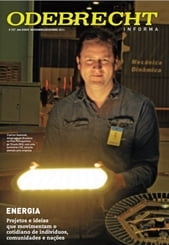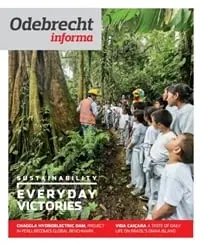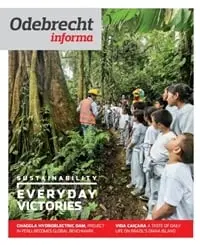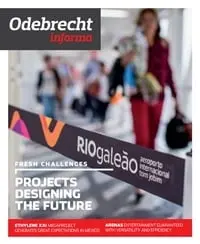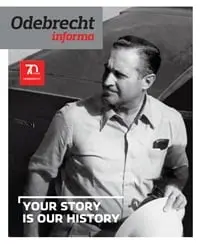written by Gabriela Vasconcellos
photos by Márcio Lima
The daisy is a curious flower. If you look at it up close you will find that it actually consists of two types of flowers. It is no accident that the white petals surround the yellow center. With distinct functions, each segment is part of a whole that performs different tasks essential to its survival. The community that bears its name is just the same. The Margarida (Daisy) Alves settlement, located in Ituberá County (280 km from the state capital, Salvador), arose from the Landless Workers Movement’s occupation of the area in 1998. Since then, the families have organized, parceled out the land and joined forces to develop their community.

youngest son: “We now have technical
support and our productivity has grown”
Antonio Nascimento Santos, 64, arrived in the region in 1996, along with his wife and children, in search of work. “I had nowhere to plant my crops, but we managed that here. Back then, my greatest desire was to have a piece of land,” he recalls. The farmer found a growth opportunity when the Hearts-of-Palm Producers Cooperative of the Southern Bahia Lowlands (Coopalm) arrived in the settlement in 2009. “In all these years, the most important thing that happened was the arrival of Coopalm. We are partners. We get technical support and have increased our productivity,” he says.
Antonio’s expectations grow every time he plants a peach palm. Within two years, he will harvest about 750 stalks on a monthly basis, which will net him BRL 1,100 per month from that crop alone. “I want to produce even more, and expand my property,” says the farmer, who is ready to go to work in the fields by 5 a.m. “All this ensures that we bring in some cash at the end of the month. That way I can take care of my family and the little house where I live. Now we’re planning to buy a car,” he says.
Antonio does not work alone. His youngest son, Antonio Nascimento Santos Filho, the only one of his three children who still live in the settlement, not only shares his name but his love of the land. “Farming is my life. It’s my business,” says Antonio Filho, 24. A student at the Igrapiúna Rural Family House (CFR-I) teaching unit, as well as a Coopalm member, he is part of the Program for the Integrated and Sustainable Development of the Mosaic of Environmental Protection Areas in the Southern Bahia Lowlands (PDIS), an organization supported by the Odebrecht Foundation.
Antonio Filho is about to graduate from the three-year course at CFR-I. During his studies, he has had access to training in areas such as farm management, soils, perennial crops and processing of plant and animal products, as well as the basics of cooperativism, environmental education and youth leadership. The new techniques he has learned, together with the assistance of Coopalm, have helped boost the productivity of his family farm.
“You can have a very good life in the countryside and grow and develop without needing to migrate to big cities in search of a dream that does not exist,” says the new rural entrepreneur, who joined Coopalm in 2011. “In the future, I’ll definitely be involved with farming,” he says. His father is sure of that as well: “I am very happy to see my son working the land. In the countryside, we can have it all.”
Over 10,000 stalks harvested in 2011
Currently, 18 of the 25 families living in Margarida Alves are cooperative members. In 2011 alone, they harvested more than 10,000 palm stalks, which has generated an average income of over BRL 750 for the farmers. “We believe in the cooperative because we can see that it is a successful program,” says Antonio Filho.
Besides Coopalm and CFR-I, other institutions linked to the PDIS are also interacting with the settlement. The Land Conservation Organization (OCT), for example, has helped the community get environmental regulation from the state government. The Guardian Association for the Pratigi Environmental Protection Area (AGIR) facilitates official documentation and accounting, and the Continental Waters Aquaculture Cooperative (Coopecon) has initiated contact with the community to implement fish farming in the region, creating another opportunity for work and income.
For the residents of the settlement, this is just the beginning. “We can already feel the difference. Our community has developed, we have more peace of mind and guidance,” says Ananias de Sena, 73, one of the oldest residents of Margarida Alves, who is also a Coopalm member. “Our income has done nothing but grow.”
Ananias’s determination can be seen in every family that is inspired by the strength and courage of the woman from whom the community got its name. Margarida Maria Alves, who died in 1983, was a fighter, a pioneer in defending the rights of rural workers in Brazil. “She wasn’t from around here, but we know all about her struggle,” says Ananias. According to the stories he tells, Margarida was nothing like a fragile, delicate flower. Her bravery and dedication to the group she defended were more like the yellow center that holds the white petals together.


